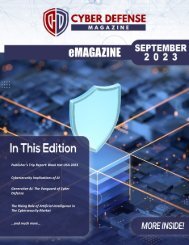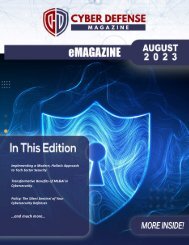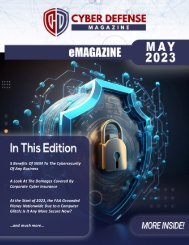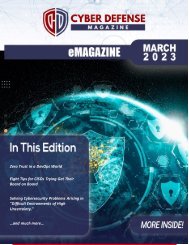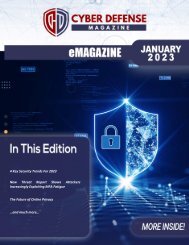The Black Unicorn Report for 2021
In this Black Unicorn Report for 2021, we’ve taken a few unique cybersecurity lenses to view the market and predict the future. Note that post COVID-19, the world has turned upside down and it’s accelerated telecommuting and cloud-based apps (SaaS) expansion, moving us from 3-4% home workforce to over 51% and growing. Thus, the major attack vectors have shifted to the cloud and weaker home-computing hygiene. This has opened doors for increased revenues and visibility among those players who secure the cloud, SaaS apps and deal with weak, remote, exposed endpoints. Learn about the winners and finalists in seven key categories and get one step ahead of the next threat with their help.
In this Black Unicorn Report for 2021, we’ve taken a few unique cybersecurity lenses to view the market and predict the future. Note that post COVID-19, the world has turned upside down and it’s accelerated telecommuting and cloud-based apps (SaaS) expansion, moving us from 3-4% home workforce to over 51% and growing. Thus, the major attack vectors have shifted to the cloud and weaker home-computing hygiene. This has opened doors for increased revenues and visibility among those players who secure the cloud, SaaS apps and deal with weak, remote, exposed endpoints. Learn about the winners and finalists in seven key categories and get one step ahead of the next threat with their help.
Create successful ePaper yourself
Turn your PDF publications into a flip-book with our unique Google optimized e-Paper software.
APIs are the New Cybersecurity Battlefield, But<br />
You're Doing It Wrong<br />
By David Thomason, WW Director of Solution Architects at Noname Security<br />
“For every complex problem there is an answer that is clear, simple, and wrong.”<br />
• H.L. Mencken<br />
Be<strong>for</strong>e the global COVID-19 pandemic, Gartner predicted that APIs would become the most-frequent attack<br />
vector by 2022. Necessity, as they say, is the mother of invention. <strong>The</strong> pandemic <strong>for</strong>ced many to accelerate<br />
their digital trans<strong>for</strong>mation journey. Enterprises had to rethink the perimeter, transition to supporting an<br />
almost entirely remote work<strong>for</strong>ce, and adopt multi-cloud infrastructure — APIs became the lifeblood of the<br />
modern digital enterprise.<br />
This rapid shift to an API-first world also accelerated API cyber attacks. It’s safe to say that APIs are already<br />
the most-frequent attack vector ahead of schedule, establishing API security as one of the top initiatives<br />
<strong>for</strong> CISOs worldwide.<br />
Yes, APIs are under attack, but I caution security leaders of the dangers of treating the symptom instead<br />
of the cause of API vulnerabilities. API security is far more than just attack prevention.<br />
Many of the recent API leaks, like Experian leaking American credit scores or Peloton leaking user data,<br />
were not due to an attack. A single misconfigured API can put an entire environment at risk. API security<br />
is not about protecting APIs, it is about protecting an enterprise’s digital environment from the threats<br />
associated with APIs.<br />
73










